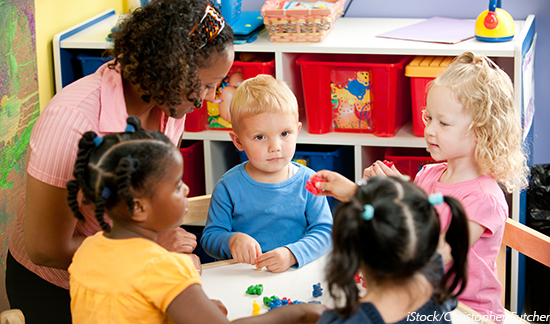
The I-LABS Outreach and Education team will receive $2.5 million over 5 years to help develop evidence-based resources for early childhood educators and caregivers.
The effort is part of the newly-formed National Center on Early Childhood Development, Teaching and Learning, which aims to improve outcomes for children and support professional development systems for childcare providers.
"We're delighted to have the opportunity to help early learning professionals around the country implement the latest scientific findings into their work with young children," said Sarah Roseberry Lytle, I-LABS director of outreach.
The new funding advances I-LABS as a national leader in outreach to the early childhood education community.
"The science shows that from birth to age 5 is a critical time in brain, cognitive and social development," Lytle said. "We're eager to share research findings showing how young children learn best with people who can put those findings into action."
The Administration for Children & Families (ACF), a division of the U.S. Department of Health and Human Services that oversees Head Start, home visiting, health and wellness, and other childhood programs, announced the new center October 5.
It is one of six national centers the ACF launched this fall, and it is the only one focused on improving the quality of early childhood education.
With the national nonprofit Zero to Three and other research and early childhood education partners, I-LABS will work toward improving the quality of early education practices by implementing the latest research in child development.
"Zero to Three and our partners look forward to supporting Early Head Start and Head Start grantees, as well as the broader childcare community, as they help prepare young children to be ready for school and life," Matthew Melmed, executive director of Zero to Three, said in a new release.
"The new center will integrate a developmental perspective in all of its activities reflecting how human brains are built—from the bottom up," he said.
###